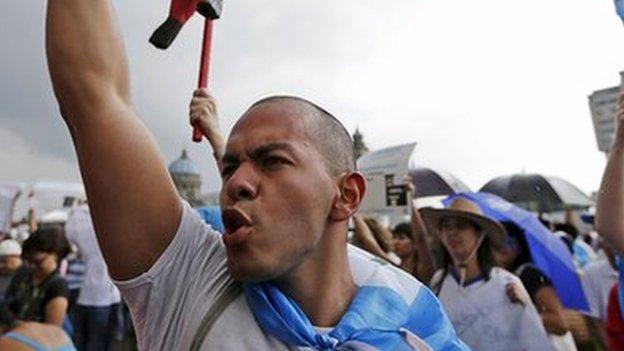Guatemala sets pace in corruption fight
- Published
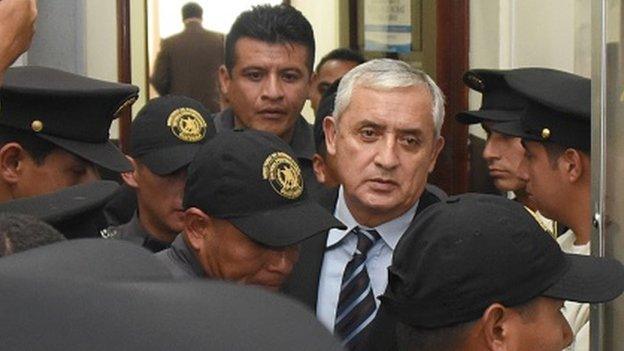
Otto Perez Molina had been in power since January 2012
Guatemalans have been making quite a noise in recent months.
Whether it was the shout repeatedly asking the president to: "Resign, now," or the honking of the vuvuzelas in the crowds, their cries seem to have been heard.
Earlier this month, President Otto Perez Molina stood down, external, after Congress voted to strip him of his immunity.
He is now behind bars, awaiting trial over an alleged corruption scandal that has outraged Guatemalans.
Mr Perez Molina has been accused of involvement in a case known as "La Linea", external (The Line), named after a hotline businesses allegedly called to access corrupt officials.
Prosecutors say millions of dollars were paid in bribes.
The allegations emerged in April in an investigation by the International Commission against Impunity in Guatemala, external (CICIG), a UN body created in 2006 to strengthen the country's rule of law.
Former Vice-President Eduardo Stein, who helped establish the commission, says Guatemala wanted to learn how to carry through criminal investigations that had previously been weak and often knocked down at the beginning of the trial.
"Since the UN has a way of handling post-war societies, through the Security Council, we thought, 'Why can't we ask for a different kind of help from the international community that could strengthen our judiciary?'" he says.
The commission's role has evolved to include alleged corruption cases.
New hero
There was no precedent for the CICIG, according to Adriana Beltran from the Washington Office on Latin America. It was not easy to set up either.
But it has proven successful.
Unable to look up to their leadership, Guatemalans' modern-day hero is Ivan Velasquez, who is in charge of the CICIG.
He is a superstar in Guatemala at the moment, and now many in the region want a CICIG of their own.
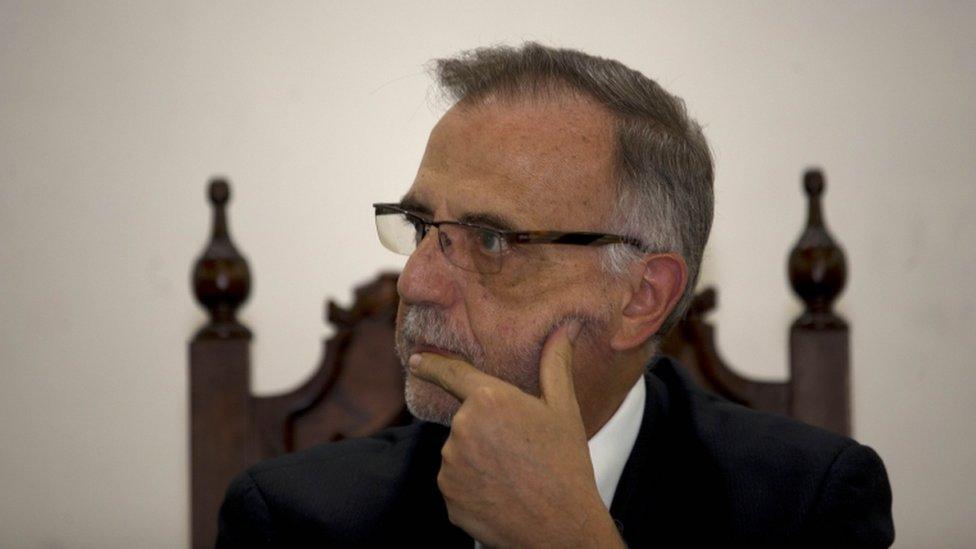
Ivan Valesquez is a superstar in Guatemala
"It's something each country has to evaluate," Mr Velasquez tells BBC Mundo.
He acknowledges there is a desire for a CICIG in places such as Honduras, which has seen its own protests over alleged corruption in recent months. There are also calls from Mexico.
"But it has to be with cooperation from the government, because this isn't just a commission brought in by anyone," Mr Velasquez adds.
"There has to be a will from the country to establish a commission like this."

International Commission against Impunity in Guatemala objectives:
Investigate the existence of illicit security forces and clandestine security organisations that commit crimes that affect the fundamental human rights of the citizens of Guatemala, and identify their structures, activities and financing
Help the state disband these groups, and promote investigation and prosecution of crimes committed by their members
Recommend policy reform to prevent re-emergence

Former Mexican Foreign Secretary Jorge Castaneda agrees the next logical candidate for a UN-type body is Honduras.
It is far less likely to happen in Mexico, although he says there is a growing acceptance by the Mexican authorities of outside help.
The best example of that is with the investigation into the 43 students who disappeared last year.
With families unsatisfied with the government's efforts, six months ago, a group of independent foreign experts were hired by the Inter-American Commission on Human Rights to look in to the investigation.
On Sunday, they released a damning report, challenging the government's version of what had happened on the night the students disappeared.
There are similar cases where there is pressure for external reviews, such as with an alleged shootout by federal police in Tanhuato, external, torture in the town of Tlatlaya and an alleged massacre in Apatzingan, external.
"It's not impossible that a little later you'll move on to corruption," says Mr Castaneda.
Impunity in Mexico
Last year, Mexico ranked 103 out of 175 countries on Transparency International's Corruption Perceptions list. According to Mexico's statistics institute, 98% of homicides in 2012 went unsolved.
This issue of impunity is right at the heart of what people are dissatisfied with in Mexico, according to Duncan Wood, of the Mexico Institute at the Wilson Centre in Washington.
"The fact that a country like Guatemala has been able to take this step forward just highlights how backwards things are in Mexico," he says.

The so-called "White House scandal" raised questions about how First Lady Angelica Rivera acquired her home
Mr Wood says there has been progress, with a recently-passed anti-corruption law, and acknowledges Mexico has an advanced legal framework.
"But when it comes down to implementation and execution, it doesn't do a particularly good job historically," he says.
Many of the recent political controversies in Mexico have been issues of conflict of interest, such as the so-called "White House scandal", external, which raised questions about how the president and First Lady Angelica Rivera acquired their $7m (£4m) private home.
And Mr Wood thinks the country has not yet reached its tipping point.
"Mexican society has a unique alchemy," he says.
"The same conditions that would force a change in Guatemala are not going to force the same change in Mexico."
- Published4 September 2015
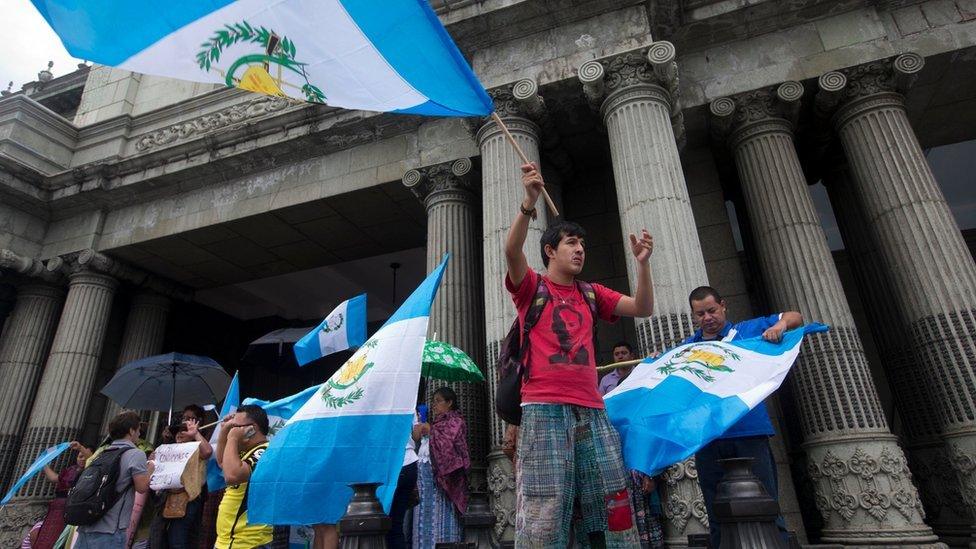
- Published8 September 2015
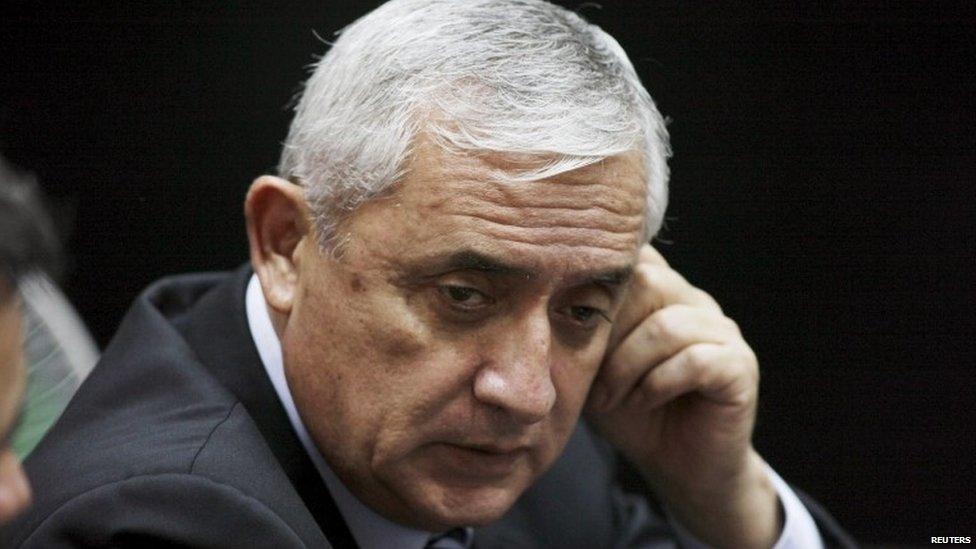
- Published3 September 2015
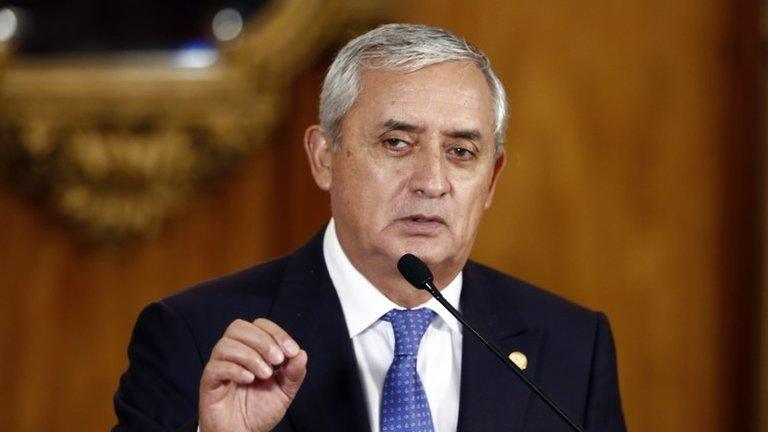
- Published15 January 2012
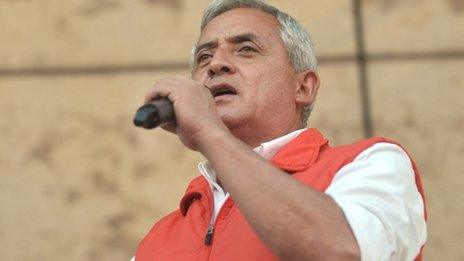
- Published27 May 2015
